Claudio Edinger
| Claudio Edinger | |
|---|---|
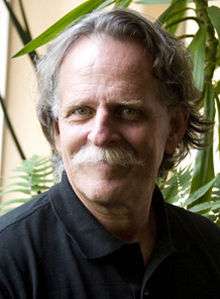 | |
| Born |
Claudio Henrique Edinger May 3, 1952 Rio de Janeiro, Brazil |
| Nationality | Brazilian |
| Education | Studied with Philippe Halsman |
| Known for | Photographer, Writer, Art Director, editor, Curator |
| Notable work | 13 photo books and 1 novel |
| Movement | Fine Art Photography |
| Awards | Leica Medal of Excellence, Ernst Haas Award, Higashikawa Award, etc. |
| Website | http://www.claudioedinger.com |
Cláudio Edinger is a Brazilian photographer [1] born in Rio de Janeiro in 1952. He lived in New York from 1976 to 1996.[2]
Biography
Edinger [3] studied economics at Mackenzie University in São Paulo, Brazil. At the same time, in the beginning of the Seventies, he began taking photographs.[4] In 1975 he had his first individual exhibition, at the São Paulo Museum of Art, with photographs of the Martinelli Building, a vertical slum in downtown São Paulo. The following year he moved to New York City and lived there until 1996.
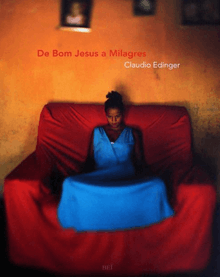
Throughout the 20 years he spent in the United States, Edinger developed personal photographic essays. He also worked as a freelance photographer for Brazilian and North American newspapers and magazines such as Veja, Time, Newsweek, Life, Rolling Stone, Vanity Fair, The New York Times Magazine, among many others. In 1977 he studied with Philippe Halsman (1906–1979), the great master portraitist.
In 1978 after two years photographing the Hassidic Jews in Brooklyn, Edinger had an individual exhibit "Hassidic Jews” at the International Center of Photography in New York. From 1979 to 1994 Edinger taught classes at Parson's/New School for Social Research and at the International Center of Photography (1992–1994).
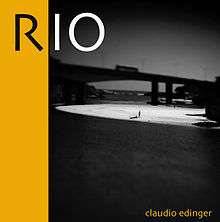
During the time Claudio lived in New York City, he published three books: Chelsea Hotel[5] –1983, Venice Beach[6] –1985 both by Abbeville Press, (both received the Leica Medal of Excellence), and The Making of Ironweed,[7] published by Viking Penguin, about the film directed by Hector Babenco, written by William Kennedy, with Meryl Streep and Jack Nicholson. In 1986 Claudio started photographing for a book about India.
In 1989 and 1990 Claudio photographed the Juqueri Psychiatric Hospital, in São Paulo, where he lived for two weeks. Madness [8] was published by DBA, DAP and by Dewi Lewis Publishing[9] in 1997. Edinger received the Ernst Haas Award in 1990 for this work.
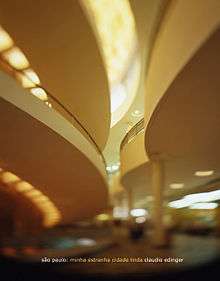
From 1991 to 1996, Claudio photographed carnaval in Brazil's five different regions: Rio de Janeiro, Salvador, Recife/Olinda, São Paulo, and Paraty. When he returned to Brazil in 1996, Edinger published Carnaval,[10] by DBA, DAP and Dewi Lewis (England). In 1999 Carnaval won the Higashikawa Prize [11] in Japan.
Between 1994 and 1996, Claudio photographed the old part of Havana, Cuba. Old Havana [12] was published in 1997 by Dewi Lewis, Edition Stemmle, DBA and DAP. That same year the book was named by American Photo as one of the best books of the year.
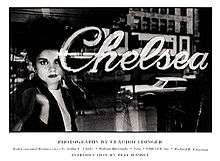
In 1999, the book Vitória, city of the islands, about the capital of the Espirito Santo State in Brazil, was published by Abooks. In 2000 Edinger published Cityscapes,[13] with photographs of New York. In 2001, Portraits, a collection of photos done for his books and for magazines. Both books were published by DBA.
In 2006 the book Flesh and Spirit, an anthology of 30 years of his work, was published by Umbrage[14] and DBA.
Claudio began working with a large format, 4x5 camera, in 2000, to photograph the city where he was born, Rio de Janeiro. Rio[15][16] was published in 2003 by DBA. It was named one of the best books of the year by Photo District News.
His most recent book: São Paulo: minha estranha cidade linda also done with a large format camera, came out in March 2009, published by DBA and has received the Porto Seguro Award in Brazil.
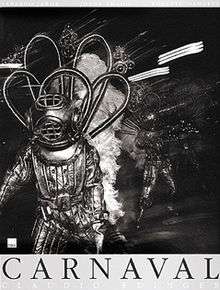
Photographic career
Claudio Edinger was born in Rio de Janeiro in May 1952 and before his second birthday his family moved to São Paulo. He has said that in his mind he has often thought his soul was in São Paulo and his heart in Rio. This love of both places, he believes, shows in his photographs of both cities.
Edinger may well be the contemporary master of the photographic series. Taking his cue from Tolstoy's phrase, "without knowing who I am, life is impossible", Edinger, from the beginning of his career, has used his camera as a research tool trying to explore his chosen subject matter in great detail, often to its depths. It is research that is often highly charged emotionally both to Edinger and to the viewer of his photographs.
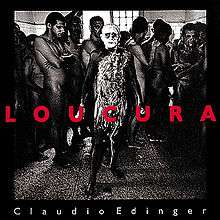
Edinger's first series of photographs began in 1975 when he chose to explore the Martinelli Building in São Paulo, his home city. At one time the Martinelli was the tallest and most exclusive apartment building in São Paulo. When Edinger began his (photographic) essay on the Building, it had been reduced to a vertical slum.
One can say that by exploring a subject in depth, Edinger had set the template of his aesthetic that the camera can be used to explore in depth which has resulted in over thirteen books dealing with specific subjects.[17]
In order to widen his knowledge of the world and to try to examine his own roots, Edinger left Brazil for New York, which was then the heart and center of the photographic world. Edinger chose to live among and photograph the Hassidic Jews of Brooklyn. In a series of startling black and white photographs taken over two years, Edinger was able to capture a broad portrait of the traditions and joys of the Hassidic community. After being introduced to Cornell Capa by Philippe Halsman in 1978, he was invited to exhibit his depiction of Brooklyn's Hassidic life at the International Center of Photography.
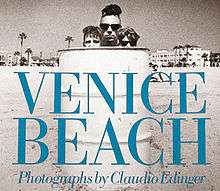
After Edinger's stay in Brooklyn, he moved to the historic Chelsea Hotel, a Bohemian, for want of a better word, oasis where many notable people in the arts and eccentrics chose to live either in transit or permanently. Among the many residents, at one time or another, were many painters who had studios there as well as musicians such as Bob Dylan, Virgil Thompson, Jimi Hendrix and Janis Joplin who spent time there. Edinger photographed in telling, but sympathetic portraits many of the famous, as well as the eccentric personalities who were never to become famous who inhabited the world of the Chelsea Hotel in the late 1970s. The series of portraits resulted in Edinger's first large scale book, "Chelsea Hotel" published by Abbeville Press in 1983. The book, his first solely of portraits, was a landmark achievement in exploring diverse group of eccentric people often having only one thing in common, their residence at the Chelsea Hotel. The book is a classic photographic record of the late 70's, early 80s.
From the Chelsea, in 1984, Edinger moved to Venice Beach, California. During the late 1960s and '70s, Venice Beach was a center of the counter-culture and a fertile field for Edinger's camera, photographing the many odd and the bizarre people who had come there to be near the sea and enjoy the beach culture. In a sense this was an extension of Edinger's work at the Chelsea Hotel, but here the people had not only pretensions to the arts, but were also concerned with their bodies and the beach. The series of photographs Edinger took at this time allowed the photographer to put his subjects in a wider landscape than the narrow confines of the Chelsea Hotel. In a sense the book, "Venice Beach", that resulted from this period is pivotal in Edinger's development as it prepared him for his next adventure when he went to India in 1986.
Edinger's transition to India became a period of great creative and spiritual experiment and growth. He began to use color in his photographs and the holy city of Varanasi played a vital role in awakening his dormant recognition of his own need for a deeper spirituality that had begun in Brooklyn. Using a newly acquired Hasselblad camera, he was able to photograph in medium format the excitement and whirl of people and places of India that in many ways captures the essence of India as both an accepted insider and a foreigner discovering the essence of the country's spiritual nature. This has resulted in the ongoing project of a series of photographs of Northern India.
Upon his return to Brazil Edinger had to cope with the reality of trying to understand the consequences of Alzheimer's disease on a most personal nature. His beloved grandmother had been affected by the disease and he was moved to bring attention to the treatment of madness and dementia in Brazil and possibly in other places in the world where the mentally ill are often warehoused in asylums and become even more truly mad, This led to his series of photographs inside the Juqueri, Latin America's largest insane asylum. In order to seek out and understand the depth of what occurs there Edinger moved inside the asylum to live among the people housed there. The result of his search was the receipt of the Ernst Haas Award from the Maine Photographic Workshop. When he showed these harrowing photographs to Cornell Capa, he was met with the question, "Who would want to see this?" After seven years of showing the work around to various publishers it was finally accepted and published by DBA (Brazil) and Dewi Lewis (UK) and it is now a seminal work of photography depicting the mentally ill.[18][19] While seeking publication of Madness, Edinger began a project that was to occupy him for the next five years: the photographing of Brazil's Carnaval, the institutionalized madness of Brazil. From 1991 to 1995 he photographed five different regions of Brazil - Rio, Salvador, Recife/Olinda, São Paulo and Paraty during Carnaval. The book was published in 1996. This project established Edinger as a truly Brazilian photographer, now with an established international reputation, back on to his native soil after twenty years abroad in New York.
Other books followed. Old Havana, a portrait in color of the decay of a once exquisite colonial architecture kept barely alive by its vibrant inhabitants. This book was published simultaneously in English, Portuguese and German.
In 2000 Edinger's Cityscapes was published by DBA (Brazil). It is an autobiographical work of reflection and discovery about his time in New York as a photographer living in a foreign city. Using an outsider's view to see and experience one of the most photographed cities in the world Edinger was able to photograph the city in a fresh way.
This prepared him for his return to Brazil to confront through his photography, in the year 2000, the city of Rio where he was born. There, through his camera, this time using a large format Sinar 4 x 5 and black and white film, the ambiguity of spaces in large cities that he first found in New York is realized. What emerges is a very personal series of photos that excite the viewer as well as the photographer showing the connection to his subject matter in the most intimate and poetic way. Working with selective focus and a large format camera Edinger's work has evolved into a somewhat surreal study that one art critic has called the invention of neo-espressionism in photography. It is one of the most personal statements by a photographer now practicing his art.
The books that have subsequently come from his use of the large format camera and his experimental use of color, notably his most recent exploration of São Paulo have been a giant step in Edinger's work resulting in a widening acceptance of Edinger's photographs in exhibitions at art galleries, museums and private collections.
Books
- Los Angeles - 2014 (forthcoming)
- Amazonia - 2014 (forthcoming)
- Paris Avant La Fin Des Temps – 2014 (forthcoming)[20]
- From Jesus to Miracles – BEI 2012 [21][22]
- Um Swami no Rio - (novel) Annablume 2009 [23]
- São Paulo - Minha Estranha Cidade Linda - DBA 2009[24][25]
- Flesh and Spirit - DBA and Umbrage 2006
- Rio - DBA 2003[26][27][28]
- Citiscapes - DBA 2001[29][30]
- Vitoria - Abooks 2000
- Portraits - DBA, ABooks 1999
- São Paulo Under Construction–ABooks 1998
- Madness - DBA, DAP, Dewi Lewis 1997[31][32][33]
- Old Havana - DBA, DAP, Dewi Lewis, Editions Stemmle 1997
- Carnaval - DBA, Dewi Lewis, DAP 1996[34]
- The Making of Ironweed - Viking Penguin 1987
- Venice Beach - Abbeville Press 1985
- Chelsea Hotel - Abbeville Press 1983[35]
Awards
- Leica Medal of Excellence | 1983 | Chelsea Hotel
- Leica Medal of Excellence | 1985 | Venice Beach
- Life magazine Award | Finalist of W. Eugene Smith Grant | 1989 | Madness
- Ernst Haas Award |1990 | Madness
- One of the year's best books | American Photo | 1997 | Old Havana
- Vitae Foundation Scholarship | 1993 | Brazilian Carnaval
- Japan Foundation Scholarship | 1997 | Hong Kong
- Pictures of the Year | 1996 | Best Photo in a Magazine - Newsweek
- Higashikawa Award (Japan) | 1999 | Best Foreign Photographer | Carnaval [36]
- PDN Photo Annual | 2003 | One of the year's best personal projects | Rio [37]
- PDN Photo Annual | 2006 | One of the year's best books | Rio [38]
- Porto Seguro Award | 2007 | São Paulo 4x5 [39][40]
- 2009 Best Photographic Book | 2009 | CLIX Magazine | São Paulo
- Porto Seguro Award | 2010 | Sertão da Bahia
- PDN Photo Annual | 2010 | One of the year's best personal projects | Sertão da Bahia
- Hasselblad Award | 2011 | Downtown Los Angeles
- Abril Award | 2012 | Best Photo Essay | Santa Catarina
- XII Prêmio Funarte Marc Ferrez de Fotografia | 2012 | A Serra de Santa Catarina - um Outro Brasil
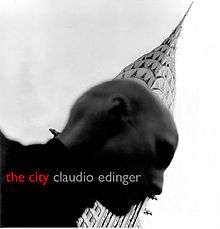 Livro The City
Livro The City
Exhibits
- 2012 SP Arte - Galeria Arte 57 (São Paulo) | Sertão da Bahia | group
- 2012 Museu da Imagem e do Som (São Paulo) | Sertão da Bahia | solo
- 2012 Athena Galeria de Arte (Rio de Janeiro) | Rio e Sertão da Bahia | group
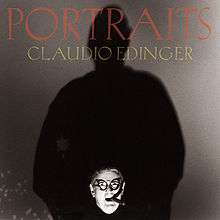 Livro Portraits
Livro Portraits - 2011 Samuel Owen Gallery (Connecticut) | São Paulo | group
- 2011 Maison Europeénne de la Photographie | Rio | group
- 2011 Athena Galeria de Arte (Rio de Janeiro) | Rio | group
- 2011 SIM (Curitiba) | Santa Catarina | group
- 2011 Casa 11 Photo (Rio de Janeiro) | Santa Catarina e São Paulo | group
- 2011 Galeria Maria Baró | Amazônia | group
- 2011 ArtRio - Galeria Athena (Rio de Janeiro) | Rio | group
- 2011 SP Arte Foto - Galeria Arte 57 (São Paulo) | Santa Catarina | group
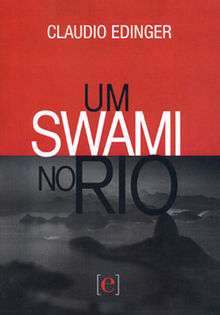 Livro Um Swami no Rio
Livro Um Swami no Rio - 2011 SP Arte - Galeria Arte 57 (São Paulo) | Santa Catarina | group
- 2010 Arterix (São Paulo) | Sertão da Bahia | solo
- 2010 1500 Gallery (Nova York) | São Paulo | solo [41]
- 2010 SP Arte Foto - Galeria arte 57 ( São Paulo) | Amazônia | group
- 2010 SP Arte - Galeria arte 57 ( São Paulo) | Amazônia | group
- 2009 Espaço de Arte Trio (São Paulo) | Paris | solo [42]
- 2009 SP Arte Foto - Galeria arte 57 ( São Paulo) | Paris | group
- 2009 SP Arte - Galeria arte 57 ( São Paulo) | Paris | coletiva
- 2009 Galeria Arte 57 (São Paulo) | São Paulo | solo
- 2008 iContemporânea - Galeria Arte 57 (São Paulo) | São Paulo | solo
- 2008 SP Arte - Galeria Arte 57 ( São Paulo) | Madness | solo
- 2007 iContemporânea - Galeria Arte 57 (São Paulo) | Rio | solo
- 2007 Galeria Arte 57 ( São Paulo) | Flesh and Spirit | solo
- 2006 SP Arte - Galeria Arte 57 (São Paulo) | Sertão da Bahia | solo
- 2005 Palazzo Magnani (Milão) | Madness | solo
- 2003 Galeria Leica (São Paulo) | Rio | solo
- 2003 Photo España (Madrid) | Madness | solo
- 2001 Museu de Arte Moderna (São Paulo) | Cityscapes | solo
- 2000 Centro Cultural Banco do Brasil (Rio de Janeiro) | Portraits | solo
- 1999 Higashikawa Photo Fest (Japão) | Carnaval | solo
- 1999 Fotogaleria Li (São Paulo) | Portraits | solo
- 1997 Centro Cultural Banco do Brasil (Rio de Janeiro) | Carnaval | solo
- 1996 Museu Metropolitano de Curitiba | Carnaval| solo
- 1996 Museu da Imagem e do Som (São Paulo) | Carnaval | solo
- 1995 Galeria Fotóptica (São Paulo) | Old Havana | solo
- 1993 Maine Photographic Workshop (USA) | India | solo
- 1992 Galeria Cândido Mendes (Rio de Janeiro) | Madness | solo
- 1991 Visa Pour L’Image (Perpignam, France) | Madness | solo
- 1991 Museu de Arte de São Paulo | Pirelli Collection | solo
- 1990 Galeria Fotoptica (São Paulo) | Madness | solo
- 1990 Drew University (USA) | India, Madness, Hassidic Jews| solo
- 1988 Galeria Fotoptica (São Paulo) | India | solo
- 1985 Museu de Arte Contemporânea (São Paulo) | Trienal de Fotografia | solo
- 1984 Galeria Arco (São Paulo) | Venice Beach | solo
- 1983 Centre Georges Pompidou (Paris) | Brazilian Photography | solo
- 1983 Photographer’s Gallery (London) | Brazilian Photography | solo
- 1980 Parson's School of Design (New York) | Hassidic Jews | solo
- 1978 International Center of Photography (New York) | Hassidic Jews | solo
- 1976 Museu de Arte de São Paulo | São Paulo | group
- 1975 Museu de Arte de São Paulo | Martinelli | solo
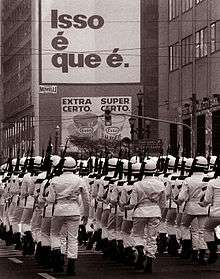 Livro 30 anos
Livro 30 anos
Teaching and lecturing
- Parson's School of Design/The New School | New York | 1979 | 1993
- School Visual Arts | Lecture | 1980 | 1981 | 1982
- MASP - Museu de Arte de São Paulo | 1988
- New York University | Lecture | 1990
- Drew University | Lecture | 1990
- International Center of Photography | New York | 1993 | 1995
- Maine Photographic Workshop | 1993 | 1995
- Barnstorm - The Eddie Adams Workshop | 1995
- International Center of Photography - New York | Lecture | 1997
- Centro Mario de Andrade - São Paulo | Workshop | 1998
- Editora Abril - São Paulo | Workshop | 1998
- O Globo - Rio de Janeiro | Workshop | 1999
- Senac Photography College - São Paulo | Lecture | 2000 | 2001
- Paraty Em Foco - Workshop |2007 | 2008 | 2009 | 2010 | 2011 [43]
Work in the collections of
- AT&T Photo Collection • Adriana Rondons • Alberto de Carvalho Alves • Alfredo Setubal • Aline de Almeida Prado
- Ana Luiza Brant de Carvalho e Nerval Ferreira Braga • Ana Vitória Mota • Anna Alvarenga • Antonia Galdeano
- Ataide Vaz • Antonio Carlos e Bibia Cunha Lima • Banco Itaú • Beatriz Vidigal Araújo • Bernardo e Celia Parnes
- Betina e Gilberto Martins Ferreira • Betty Cunali • Bianca Cutait • Bianca Rainer • Bianca Munis
- Bibia e Neno Cunha Lima • Brazil Golden Art Fund • Bruno Musatti • Carlos e Maria Emilia Carvalhosa
- Carla Ferraro • Carmen de Barros • Centro Cultural Banco do Brasil • Cliff Lee • Charlô Whately • Christina Cunali
- Claudia Belinello • Claudia Jaguaribe • Credit Suisse • Dado Castello Branco • Daniel Feffer • Denise Aguiar Alvarez
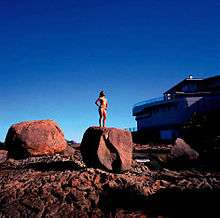 Livro Vitoria
Livro Vitoria - Dudu e Mara Linhares • Eder Chiodetto • Edu e Helô Muylaert • Dr. Eduardo Villaça • Elias Landsberger
- Elisa Pacheco Fernandes • Equity International Photo Collection • Esther Giobbi • Fanny Feffer • Felipe Feitosa
- Flavia Soares • Flavio Bitelman • Fernando Ullmann • Greg e Claudia Sanchotene • Higashikawa Photofest (Japão)
- Gustavo Lacerda • Helô Monteiro da Silva • Helena e Toninho de Castro Sannini • Illia e Ana Maria Warchavchic
- International Center of Photography | New York • Itaú Cultura | São Paulo • Jay Colton • João e Fatima Farkas
- João Marcos Mendes de Souza • Joelma Radziuk • Joaquim Paiva • João Paulo e Adriana Cunha Lima
- Jorge e Janja Gonçalver • Jorginho da Cunha Lima • José Augusto de Santana • José Roberto Marinho
- José Olavo Scarabotolo • Juan Esteves • Jussara Magnami • Leonel Kaz • Ligia Danesi • Ligia Maura Costa
- Lisa Sander • Lourdinha Siqueira • Luis Fernando e Maribel T. Neves • Luzia de Magalhães Padilha
- MAC - Museu de Arte Contemporânea | São Paulo • Malan Ferreira • MAM - Museu de Arte Moderna | São Paulo
- Maná Soares • Mariana Almeida Prado • Mariana e Ricardo Annunciato
- Marilisa Cardoso e José Eduardo de Lacerda Soares • Mark Whitley • Marli Mariano
- MASP - Museu de Arte de S. Paulo • Museu da Imagem e do Som | São Paulo • Museu Metronòm | Barcelona
- Museu Metropolitano de Curitiba • Marcel Jung • Nerval e Bize Ferreira Braga • Nina Sander • Oswaldo Pepe
- Otávio R. Macedo • Coleção Pirelli • Paula Palhares e Rubens Fernandes Junior • Patricia Mendes Caldeira
- Raquel Correa de Oliveira • Renato Ganhito • Renato Magalhães Gouvêa Jr. • Renato Padro Costa • Ricardo Moraes
- Ricardo Queiroz • Roberta Rossetto • Roberto Carvalho • Roberto Ruhman • Rodrigo Ribeiro
- Sandra Arruda e Andre Balbi • Sergio Gantmanis Munis • Silvio Bentes • Silvio Frota • Simonetta Persichetti
- Thomas Farkas • Tutu e Sérgio Galvão Bueno • Vanessa Gantmanis e Ivan Munis
- Visa Pour L' Image | Perpignam | França • Yael e Claudio Steiner
Editorial credits
- American Photo • Art News • Business Week • Bons Fluidos • Boston Globe • Bravo
- Casa Claudia Luxo • Claudia • Conde Nast's Traveler • Daily Telegraph of London • Details • Elle • Epoca
- Estado de São Paulo • Folha de S.Paulo • Forbes • Fortune • Fotosite • Fotografe Melhor
- Digital Photographer • Isto é • Joyce Pascowitch • Life • Los Angeles Times • Marie Claire • Money
- National Geographic • Newsweek • The New York Times Magazine • Nico • Oi • Poder • Photo France
- Photo Italy • Photo District News • Paris Match • People • Playboy • República • Rolling Stone • Self
- The Smithsonian • Sports Illustrated • Stern • Time [44] • Town & Country • Travel & Leisure • USA Today
- US • US News • Valor • Vanity Fair • Veja • Washington Post
References
- ↑ ""Odeio a superficialidade" - Cultura - iG".
- ↑ Manchete 1987 p194 "Embora residindo há 11 anos em Nova Iorque, o fotógrafo brasileiro Cláudio Edinger não deixa de expor regularmente sua .."
- ↑ "Claudio Edinger fine art photography".
- ↑ "Foto Em Cena".
- ↑ "Chelsea Hotel".
- ↑ "Venice Beach".
- ↑ "William Kennedy".
- ↑ "Theme: Social outsiders".
- ↑ "Contents - Photography Books, Fiction, Biography".
- ↑ "Claudio Edinger CARNAVAL Turnaround Publisher Services".
- ↑ "The Higashikawa Award".
- ↑ "Claudio Edinger, Old Havana, Carnaval, Madness".
- ↑ "Cityscapes".
- ↑ "Umbrage Editions".
- ↑ "Espaco Paul Mitchell | 2004 |".
- ↑ "Claudio Edinger".
- ↑ "The Julia Dean Photo Workshops".
- ↑ "Luminous Lint".
- ↑ "Dewi Lewis Publishing".
- ↑ "Blog Archive » Entrevista | Claudio Edinger".
- ↑ "The F Blog: Claudio Edinger: From Jesus to Miracle".
- ↑ "The F Blog: Claudio Edinger: From Jesus to Miracle | The Click".
- ↑ "Annablume Editora".
- ↑ "Claudio Edinger".
- ↑ "Images&Visions: Considerado um dos melhores fotógrafos da atualidade, Claudio Edinger expõe em São Paulo".
- ↑ "Rio Photo Gallery, Places of a Lifetime, Travel, Photography - National Geographic".
- ↑ "Suggestion: Claudio Edinger".
- ↑ "Welcome color-noise.com - BlueHost.com".
- ↑ "Brazilian Photographer Claudio Edinger Reveals Art of the Picture Essay at Kingston.com".
- ↑ "Um postal para um amigo: Claudio Edinger".
- ↑ "[ LaHoya ] - Fotoğraf Albümleri Delilik (Madness) - Claudio Edinger".
- ↑ "face book - bookforum.com / current issue".
- ↑ Estrin, James (12 August 2009). "Showcase: On the Razor's Edge - NYTimes.com". The New York Times.
- ↑ "Edinger, Claudio (1952)".
- ↑ "Folha Online - Especial - 2006 - Revista Lugar".
- ↑ "The Higashikawa Award".
- ↑ "PDN PHOTO ANNUAL 2003".
- ↑ "PDN 2006 Photo Annual: Contacts".
- ↑ "Confederação Brasileira de Fotografia".
- ↑ "Images&Visions: Novo livro de Cláudio Edinger reúne 82 fotos de paisagens paulistanas".
- ↑ "1500 Gallery".
- ↑ "Claudio Edinger no espaço da Arte".
- ↑ "Images&Visions: Claudio Edinger: "Da idéia às prateleiras: a concretização de um livro"".
- ↑ "The One Country That Might Avoid Recession Is...". Time. 5 March 2009.
Bibliography
- Edinger, Claudio (2009). Paris, apesar de tudo. Poder Joyce Pascowitch (11) 52-59.
- Mello, C. Hélio (2009). Foco na sensibilidade. Brasileiras (20) 28-29.
- Gonçalves, N. Daniel (2009). Mistérios da cidade. Veja São Paulo (42-10) 15.
- Pan (2007). MNP (34) 74-83.
- Girls of Ipanema. (2007). Nico (summer 2007) 162-171.
- O olhar do pesquisador (2007). Fhox (114) 78-79.
- Revelou-se a sua enorme curtição. (2007). Próxima Viagem (89) 44-45.
- Jeito carioca (2007). Gol (60) 64-67.
- Edinger, Claudio (2006). De jesus a milagres. Revista Fotosite (10) 29-34.
- Elias, Érico (2006). História de um ensaísta versátil. Fotografe Melhor (113) 38-45.
- Rocha, Flávia (2006) Por um sertão imortal. Casa Vogue (250) 184-187.
- Les grands maîtres du Brésil. (2005). Photo (420) 86.
- Edinger, Claudio (2005) Fotografia na chapa. Revista Fotosite (5) 50-55.
- A-List Special Interests. (2003). Travel+Leisure (9) 152.
External links
- Paraty em Foco 2009 - Entrevista
- Shutterbug Staff. (2006) Brazilian Photographer Claudio Edinger Reveals Art of the Picture Essay at Kingston.com
- Photo.Box.Sk. About my photography - Claudio Edinger
- Metrópolis. (2009) Entrevista com o fotógrafo Claudio Edinger
- Fotoritim. Claudio Edinger : Delilik
- Festa Literária Internacional de Parati. (2008) Claudio Edinger na Galeria Zoom
- Coleção Pirelli / Masp de Fotografia. Biografia Claudio Edinger
- Itaú Cultural. Biografia de Claudio Edinger
- Photos. (2009) São Paulo: Minha Estranha Cidade Linda
- Fotosite. (2006) O Tempo de Claudio Edinger
- Simonetta Persichetti - Fotosite. (2002) A fotografia atinge sua melhor forma no livro
- Ana Paula Sabbag - Fotosite. (2005) Claudio Edinger mostra coletânea em Centro Judaico
- Juan Esteves- Fotosite. (2006) RIO Fotografias de Claudio Edinger
- Fotosite. Portfolio de Claudio Edinger